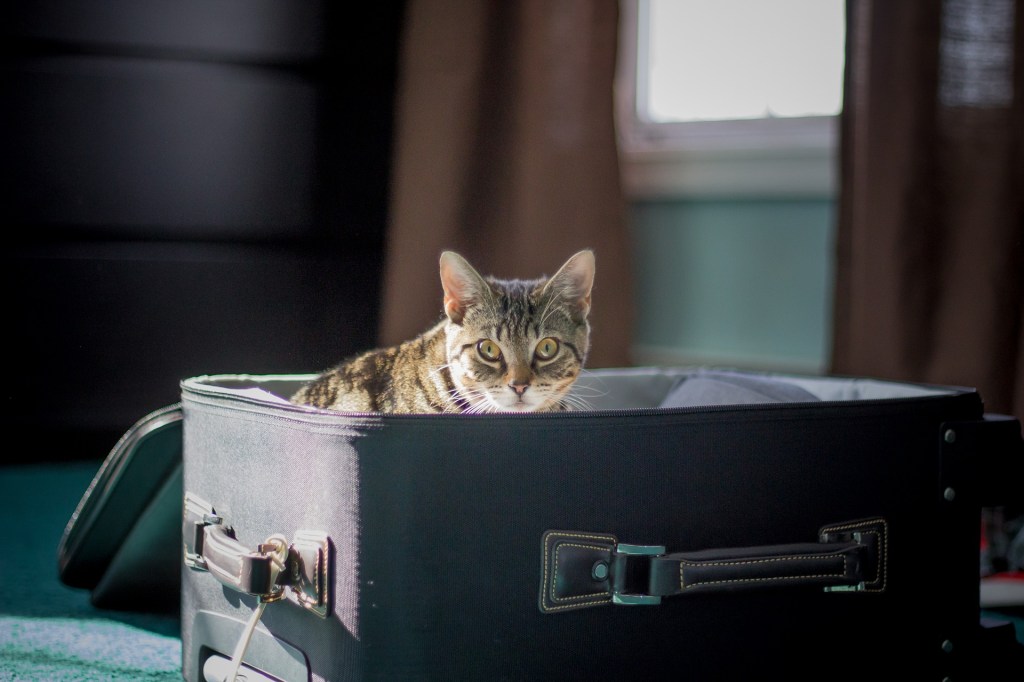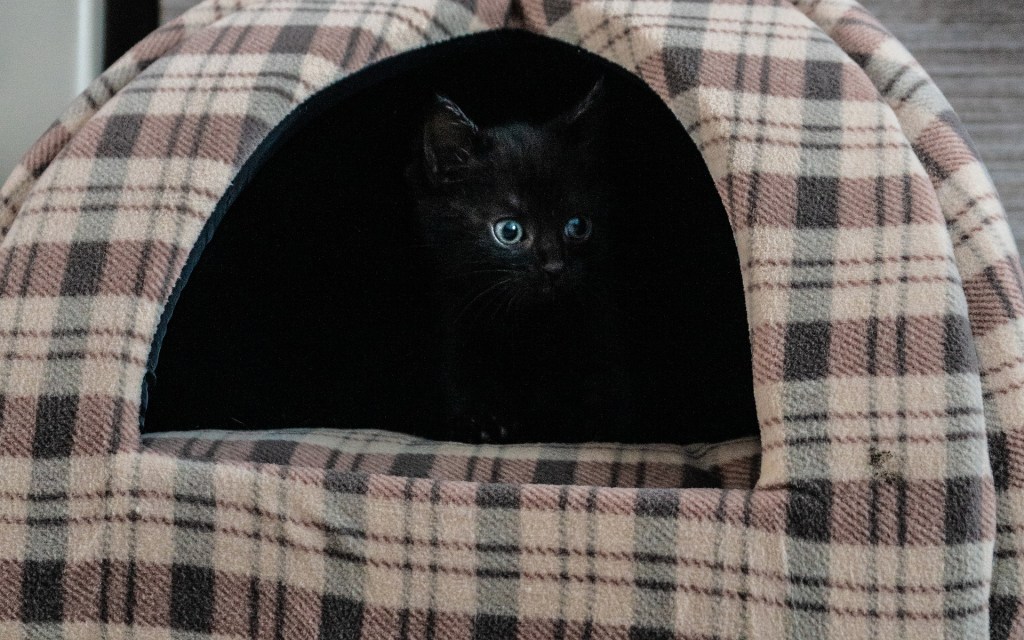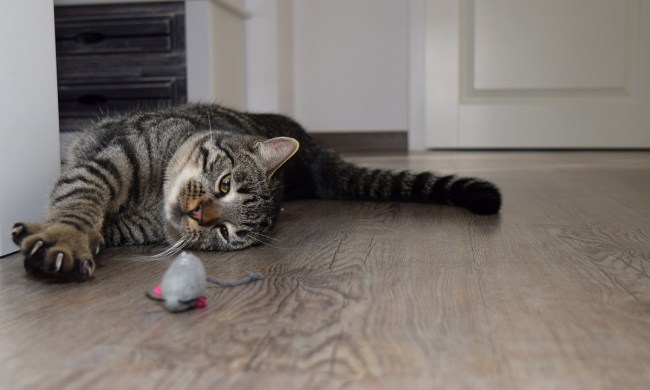You’ve probably seen it many times. Your cat picks out a box, a container, or just a spot in your home that’s entirely too small for him. Seemingly blissfully ignorant of just how large he is and how small that space is, your cat then works on cramming himself into that tiny space. He overflows it, looks completely uncomfortable, and yet insists on sitting there, or even on lying down and taking a catnap. You might pass this behavior off as your cat being silly or a little bit crazy, but there’s an actual reason why cats love small spaces so much — and it makes perfect sense.
Why small spaces make sense
Your cat might look uncomfortable to you, but when he crawls into a small space, he’s actually following his instincts and feels quite content. According to Pleasant Plains Animal Hospital, cats might seek out small spaces because they feel secure. In the wild, cats need to protect themselves from predators, and small, enclosed spaces make this easier. Cats tend to feel safer in enclosed spaces, especially when they have at least three sides. A top to the enclosure will make your cat feel even more secure.
These spots may also be appealing to cats because they’re cozy. When your cat is curled up in a small space, he can rely on his body heat to keep him comfortable. When he feels warm and secure, he’s likely to curl up and take a nap, which is why you’ll so often find your cat sleeping in these locations.

A note about small space safety
While there’s often no harm in letting your cat crawl into these little spots for a nap, he could end up in some risky situations while seeking out a cozy, secure-feeling spot. Sometimes the warmth of appliances, like portable heaters, can attract your cat, and he might try to crawl up into or under an appliance like a radiator. The same is true of warm car engines, which can be very inviting to outdoor cats in the winter.
To keep your cat safe, consider blocking off access to any dangerous places in your home that might be tempting to him. You can install pet gates or pet barriers around appliances like furnaces.
Putting your car in the garage and closing the garage door can help to keep cats from crawling up into your car’s engine. It’s also a good idea to get into the habit of loudly knocking on your car’s hood to scare out any hiding cats before your start the vehicle.

How to give your cat cozy sleeping spots
If your cat seeks out small spaces to sleep, you can help him out by creating some cozy spots just for him. One of the easiest ways to do this is to collect a few used shipping boxes. You can add fleece blankets to the boxes to make them more comfortable, and place them in warm areas of your house, like by a window where the sun shines onto the floor.
You can also buy cat beds that have more of an enclosed structure. You might find that your cat really appreciates the type of bed that is entirely enclosed with a top, and that has only a small hole for an entrance. Not only are these beds very private, but they also tend to be warm areas. You can add a blanket or even opt for a bed that’s heated to keep your cat extra cozy during cold weather.
To each cat his own
If you carefully watch your cat over time, he’ll probably show you the types of spaces that are most appealing to him. Some cats love traditional cat beds, while others might choose to seek out little spots of their own in your house. Your cat might also decide that he prefers spaces that are out of reach of other pets in the home, or that are located in quiet rooms where he can sleep without being disturbed. If you do decide to create sleeping areas for your cat, make sure that you keep them well distanced from any heating elements in the winter. By moving these spaces around and experimenting with different designs, you can determine what your cat loves and uses the most.


